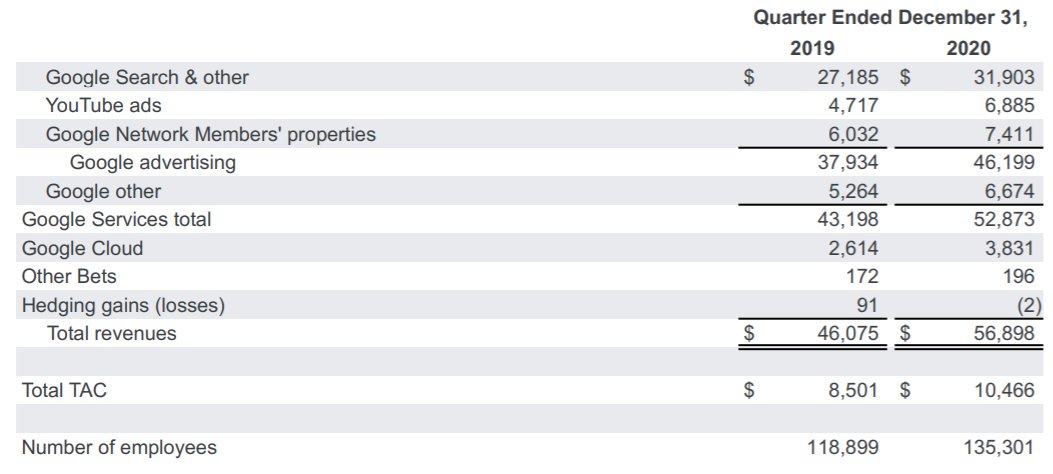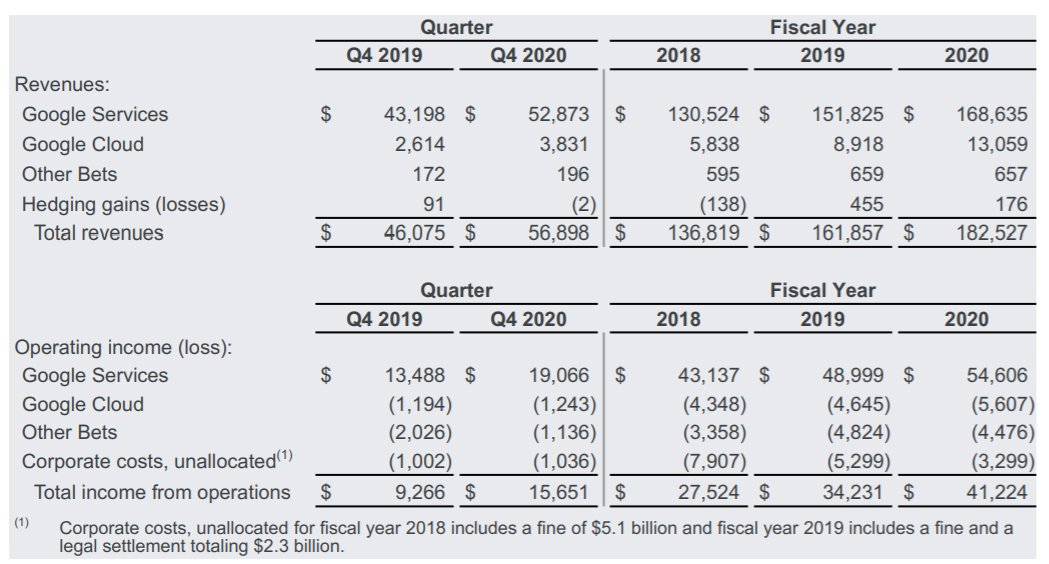
1/ Thread: $IAC/ $ANGI Q4'20 Update
"At IAC, 2020 was a year of giving back. Not just giving back via spinoffs or distributions to the shareholders who have supported us, but giving back to the communities that have enabled us."
A very stakeholder friendly into :)
"At IAC, 2020 was a year of giving back. Not just giving back via spinoffs or distributions to the shareholders who have supported us, but giving back to the communities that have enabled us."
A very stakeholder friendly into :)
2/ $1 invested in Silver King ( $IAC predecessor) in 1995 would be $40 today, which is 16% CAGR over 25-yr i.e. 50% higher than $SPY
What an incredible track record.
What an incredible track record.

3/ $ANGI
Fixed price model generated $160 Mn in 2020. More data points in terms of how fixed price perfectly fits in.
$ANGI, however, dropped ~10% after seeing lukewarm growth in January. I expect $IAC to really hone its focus on ANGI once Vimeo spin-off.
Fixed price model generated $160 Mn in 2020. More data points in terms of how fixed price perfectly fits in.
$ANGI, however, dropped ~10% after seeing lukewarm growth in January. I expect $IAC to really hone its focus on ANGI once Vimeo spin-off.

4/ Vimeo continues to hit it out of the park with +57% growth both in Dec and Jan
Vimeo spin-off is expected to close in Q2'21. Hard not to feel a little giddy for $IAC shareholders.
Vimeo spin-off is expected to close in Q2'21. Hard not to feel a little giddy for $IAC shareholders.

5/ "If you had asked me entering 2020 how Dotdash’s year would look if advertising spend from travel and entertainment categories went to zero, I wouldn’t have guessed revenue growth of 28%, including 33% growth in the most recent quarter, and with margins expanding." 

6/ Search
"Desktop declines accelerated in 2020 and we probably have not yet reached bottom, but even at these levels the business continues to produce free cash flow."
"Desktop declines accelerated in 2020 and we probably have not yet reached bottom, but even at these levels the business continues to produce free cash flow."
7/ Care.com and Other emerging
Care@work, the enterprise solution, will be one of the biggest priorities in 2021.
Mosaic is currently profitable with 3.8 mn subs and will launch new products in 2021.
Care@work, the enterprise solution, will be one of the biggest priorities in 2021.
Mosaic is currently profitable with 3.8 mn subs and will launch new products in 2021.

8/ "We never bet the company and always look to invest into strength."
"We repeatedly grow smaller to grow larger. We are a truly unique business model."
I don't believe in #NeverSell, but if I ever do, it will probably be for $IAC.
"We repeatedly grow smaller to grow larger. We are a truly unique business model."
I don't believe in #NeverSell, but if I ever do, it will probably be for $IAC.

End/ I wrote this deep dive on $ANGI two months ago (paywall): mbi-deepdives.com/angi/
I'll publish my deep dive on $CPRT on Tuesday next week.
Subscribe here: mbi-deepdives.com/plans/subscrib…
I'll publish my deep dive on $CPRT on Tuesday next week.
Subscribe here: mbi-deepdives.com/plans/subscrib…
*intro
(I'm losing my confidence everyday to post anything that wouldn't require an edit later)
(I'm losing my confidence everyday to post anything that wouldn't require an edit later)
• • •
Missing some Tweet in this thread? You can try to
force a refresh













